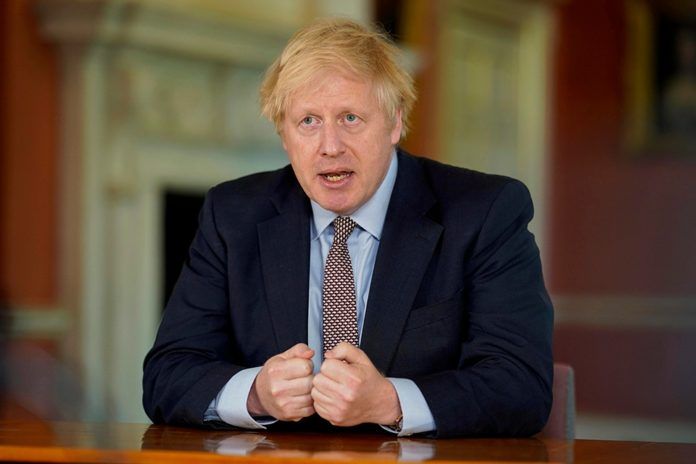The Prime Minister, Boris Johnson, has set out what he is calling “a 10-point plan for a green industrial revolution,” which according to the government will create and support up to 250,000 British jobs.
The plan involves £12 billion of government investment over the coming years to create and support up to 250,000 green jobs in the UK, in areas from energy generation to building retrofits.
The Prime Minister’s 10 points are:
1. Offshore wind: Quadrupling production capacity to 40GW by 2030, supporting up to 60,000 jobs.
2. Hydrogen: Up to £500 million, including for trialling homes using hydrogen for heating and cooking, starting with a Hydrogen Neighbourhood in 2023, moving to a Hydrogen Village by 2025, with an aim for a Hydrogen Town – equivalent to tens of thousands of homes – before the end of the decade. Of this funding, £240 million will go into new hydrogen production facilities.
3. Nuclear: There will be £525 million to help develop large and smaller-scale nuclear plants, and research and develop new advanced modular reactors.
4. Electric vehicles: The UK will end the sale of new petrol and diesel cars and vans by 2030, which is 10 years earlier than planned. Some £1.3 billion will be spent on accelerating the rollout of charge points for electric vehicles. No date has been set yet for phasing out new diesel HGVs, but a consultation process is planned.
5. Public transport, cycling and walking: Making cycling and walking more attractive ways to travel and investing in zero-emission public transport of the future.
6. Jet Zero and greener maritime: Supporting research projects for zero-emission planes and ships.
7. Homes and public buildings: Improving the energy efficiency of homes, schools and hospitals, with a target to install 600,000 heat pumps every year by 2028. Next year £1 billion will be invested into making new and existing homes and public buildings more efficient, extending the Green Homes Grant voucher scheme by a year to March 2022, and making public sector buildings greener and cutting bills for hospitals and schools, as part of the Public Sector Decarbonisation Scheme.
8. Carbon capture: An extra £200 million of new funding to create two carbon capture clusters by the mid-2020s, with another two set to be created by 2030, with a target to remove 10 million tonnes of carbon dioxide by 2030.
9. Nature: Planting 30,000 hectares of trees every year, whilst creating and retaining thousands of jobs.
10. Innovation and finance: Developing the cutting-edge technologies needed to reach these new energy ambitions and make the City of London the global centre of green finance.
The Prime Minister said: “Although this year has taken a very different path to the one we expected, I haven’t lost sight of our ambitious plans to level up across the country. My 10-point plan will create, support and protect hundreds of thousands of green jobs, whilst making strides towards net zero by 2050.”
Industry response:
The government has announced that the Green Homes Grant scheme has been extended until March 2022. The scheme, which was launched in September and offers homeowners grants of up to £5,000 for selected measures, including insulation, to carry out energy efficient upgrades to their homes, was due to end on March 31, 2021, but has now been extended until 2022.
Following the announcement that the scheme will be extended by a year, James Talman, chief executive of the NFRC, said: “The decision to extend the Green Homes Grant by a further year is a welcome relief for the industry. The previous timescale was completely unrealistic when many firms needed time to get the relevant accreditations, and most contractors and suppliers were already operating at full capacity. The government should now set out its future intentions on retrofit, beyond the next year, to give longer-term certainty to the market.”
Neil Marshall of Neil Marshall Consultancy Services, added: “The extension of the Green Homes Grant scheme is excellent news for householders and the industry. The government has listened and acted on advice from the industry, and the extension means that many more householders will be able to receive measures to reduce their fuel bills. The industry now has the certainty and confidence it needs to ramp up capacity, thereby creating thousands of new jobs as intended by the Chancellor.”
Meanwhile, the Green Industrial Revolution needs to go further with the inclusion of a long-term strategy to make all homes greener and more energy efficient, says the Federation of Master Builders (FMB).
Brian Berry, chief executive of FMB, said: “The extension of the Green Homes Grant for another year is very positive news, and shows that builders’ concerns have been listened to. This will give the reassurance needed to the building industry to invest in the scheme. However, the Green Industrial Revolution needs to be more ambitious about the built environment if the government is serious about creating a low carbon economy.”
Brian continued: “Our existing homes contribute 20% of all our carbon emissions and consume 35% of our energy. A long-term retrofit strategy is needed over the next two decades to make all our existing homes more energy efficient. Such a strategy has the potential to create hundreds of thousands of new jobs and save the NHS as much as £2 billion because of the cost of people living in poor housing conditions.
“The start of the Green Industrial Revolution has huge potential to improve everyone’s lives but tacking all our homes to make them greener and more energy efficient has to be an immediate priority and this requires a long term strategy.”




